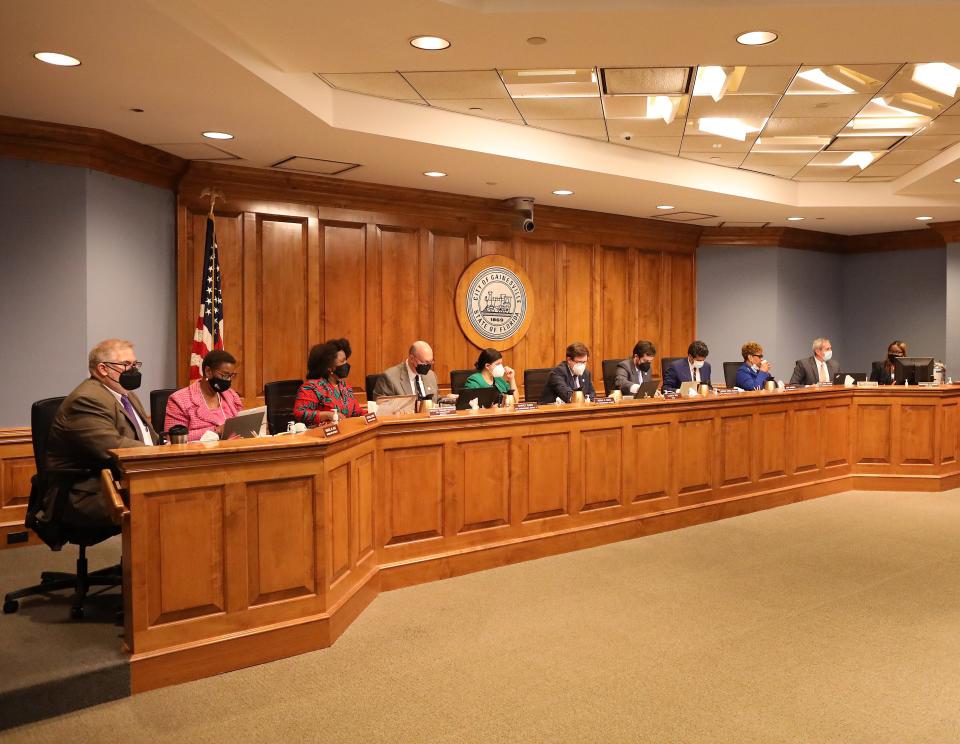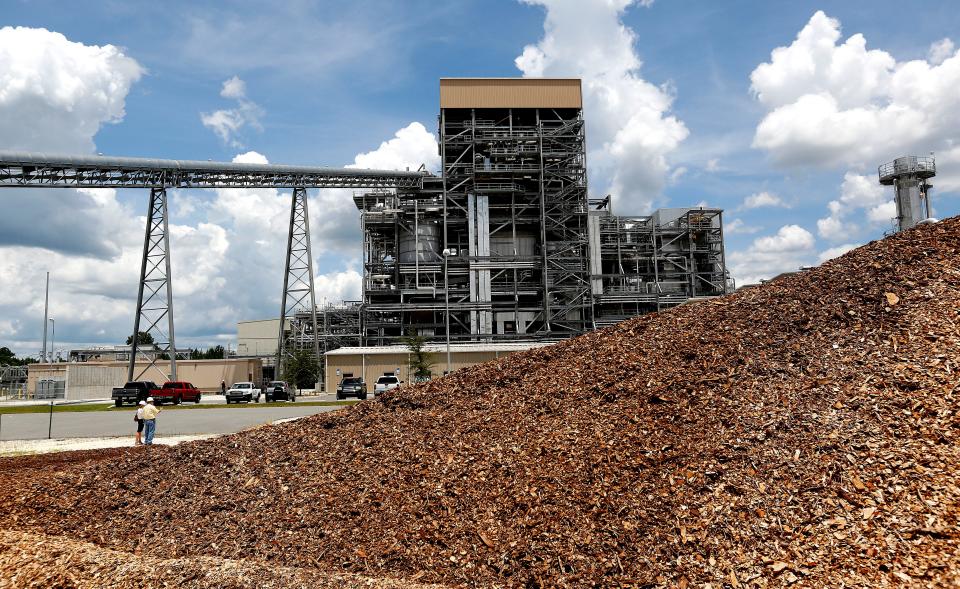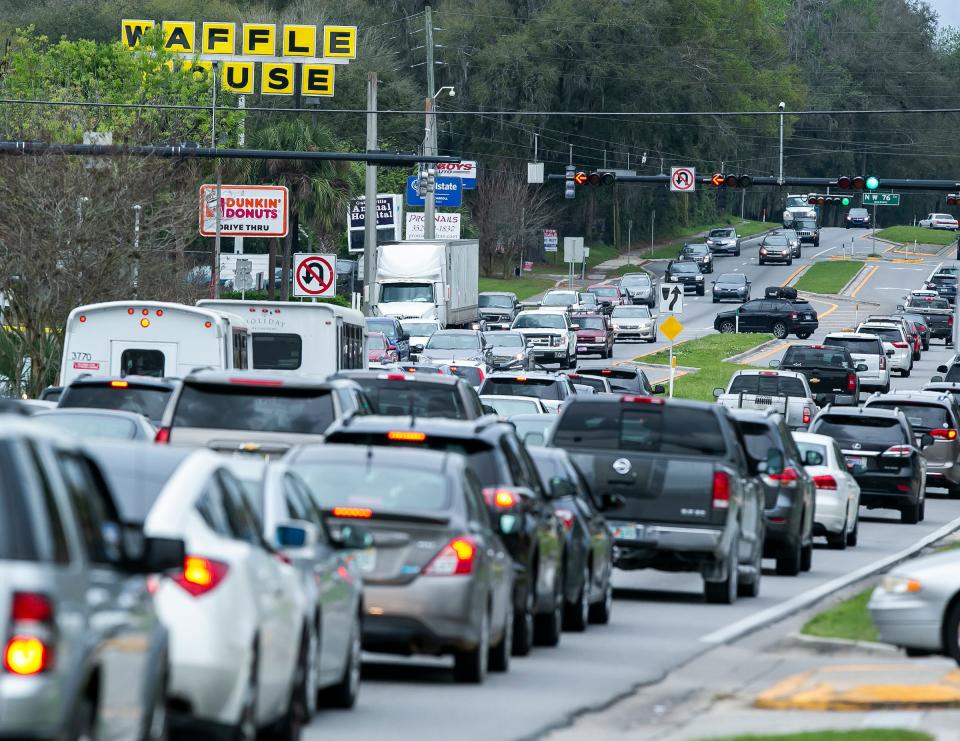Reducing Gainesville's high cost of living requires more than affordable housing
When political rhetoric does not match the reality faced by the electorate, voter confidence is eroded.
Recently the Gainesville City Commission advanced affordable housing — housing costs not exceeding 30% of income — as a primary initiative. Much has been written about this issue and significant dissent has been expressed due to the perceived negative impact of zoning changes needed to advance the affordable housing strategy.
Political rhetoric surrounding affordable housing does not match the economic reality of Gainesville’s cost of living, and this disconnect will likely inhibit voter support of an affordable housing initiative and further erode confidence in local government. Many citizens will likely see this as another example of ineffective governance where unrealistic objectives take precedent over issues like poor roads.

With recent City Commission personnel drama and apparent attempts to stifle citizen input, plus well-documented examples of commission mismanagement, little wonder that 15% voter turnout is considered "normal.” Any initiative that demonstrates further disconnect between rhetoric and reality will further alienate the electorate.
The affordable housing question really is: What advantage can occur if the reduced cost of a mortgage or rent is subsumed by ever-increasing costs to live in the house?
Housing affordability in Gainesville seems an intractable problem when every other cost of living is high and rising. This is especially true for those with low incomes.
Consider energy costs. Because of the biomass debacle, Gainesville Regional Utilities — once a fine example of a profitable utility — is now saddled with huge debt requiring multiple rate recent increases, putting GRU rates among the highest in the state.

No credible scenario for lower rates exist. Rather, the expectation is for more rate hikes. High utility costs impact affordable-housing constituents hardest. Extremely high — and increasing — energy costs could easily negate any savings from an affordable housing program.
Historically, GRU has transferred approximately $30 million per year to local government. Even with these transfers, Alachua County ad valorem tax rates are high. This is cost magnified by multiple MSTUs, local-option sales taxes and significant monthly utility fuel surcharges.
Much of the county’s acreage is tax-exempt, adding pressure on property owners for new tax revenues. Affordable housing resident-owners will feel the effect of higher taxes most.
What will happen when inevitably GRU must significantly reduce — or eliminate — the annual transfer to avoid default? How will the city deal with such revenue loss? Likely by raising taxes which will more negatively affect low-income homeowners.
Our roads are bad and traffic is worse, which must be addressed. Citizen complaints about this are ignored. Twice have voters rejected additional taxes for roads because the commission has burdened these initiatives with items not related to road maintenance.

We are now in a likely lengthy period of high inflation, exacerbating high living costs. Higher interest rates will impact borrowers seeking to build low-cost housing and will also impact GRU and city debt service.
If affordable housing residents must rent, what realistic measures are available to keep rents manageable? What incentives do landlords have to offer reduced-rent housing when the high cost of materials, permitting and code requirements, and local taxes impact construction costs?
City government lacks the financial resources to underwrite lower rents, with limited options for increasing revenue. These include:
• Significant expense reduction, primarily personnel; not likely given opposite trends in city employment. A reduction of GRU transfers would gut many programs, many of which serve the people who would qualify for affordable housing.
• Assume more debt. Quite costly given current financial ratings.
• Sell assets, the largest of which is GRU. It is not farfetched to envision the sale of GRU with Gainesville exiting the adroitly mismanaged utility business. Sale proceeds could pay-down debt at the expense of recurring revenue. GRU was once a model of a well-run municipally owned utility but is now an albatross, burdened by a voracious appetite for revenue by the same governing authority that oversaw its mismanagement.
• The final revenue option is to raise taxes; surely the most burdensome on citizens, but probably the option local government officials will endorse.
Each of these carry costs and risks that will fall hardest on those likely to qualify for affordable housing.
Rent or mortgage payment is but one part of the financial calculus of living in Gainesville. Political rhetoric is nice. Affordable housing is a worthwhile objective. Reality is a different issue. Given Gainesville’s cost of living and inevitable cost increases, such a disconnect makes affordable housing an unrealistic goal and further demonstrates a dysfunctional local government.
Thomas Lane lives in Gainesville.
Join the conversation
Share your opinions by sending a letter to the editor (up to 200 words) to letters@gainesville.com. Letters must include the writer's full name and city of residence. Additional guidelines for submitting letters and longer guest columns can be found at bit.ly/sunopinionguidelines.
Journalism matters. Your support matters.
Get a digital subscription to the Gainesville Sun. Includes must-see content on Gainesville.com and Gatorsports.com, breaking news and updates on all your devices, and access to the eEdition. Visit www.gainesville.com/subscribenow to sign up.
This article originally appeared on The Gainesville Sun: Thomas Lane: Housing just part of high cost of living in Gainesville

